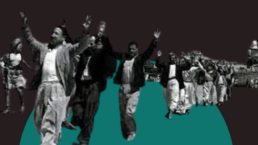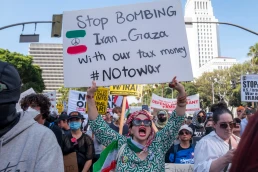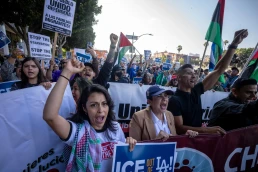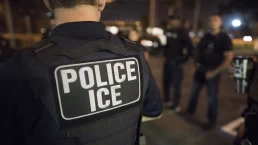The Israeli massacre in Tantura is part of the Palestinian expulsion narrative. Israelis have tried to deny that narrative from the very start; a new film shows how hard it is for them to accept it.
By Charles Lenchner
The Israeli War of Independence (and the start of the Palestinian Nakba, or Catastrophe) is in the news again. The subject returns not just as another historical footnote from a land flooded in contested history, but as part of an existential issue that will not go away.
It boils down to this: In 1948, days before Israel declared its statehood, soldiers massacred around 200 Palestinian Arabs who had surrendered near the village of Tantura. The revelations are coming not from Palestinians (who have always known) but from the aging Israeli veterans who committed the massacre, as well as those who stood by or heard about it at the time. The details emerge via haunting original audio recordings collected more than 20 years ago.

Israeli director Alon Schwarz directed the film “Tantura,” which is part of the Sundance Film Festival in the documentary category. In it he covers two related incidents. First, what happened there in 1948. Second, what happened to historian and graduate student Teddy Katz when he tried to tell that history 22 years ago. You should definitely watch this film when you can.
The world is at an interesting place when it comes to the intertwined fates of Israelis and Palestinians. On the one hand, Israel is stronger than ever; it has all the advantages of immense military and economic power. The Palestinians are at one of their weakest ebbs with a government that isn’t respected at home or abroad, forced to merely watch as Israel continues to expand settlements, evict them from East Jerusalem, the South Hebron Hills and elsewhere, and murder with impunity.
But on the other, the world no longer accepts the founding myths of the Israeli state or of the current reality of Apartheid that allocates different civil rights to different people within the territory controlled by the same state, based entirely on ethnicity. The story of “Tantura” – the film, not the massacre – is the story of Israelis attempting to grapple with the legacy of what they have done.
Not for the first time, Israelis are having to deal with the crimes that were inherent to the establishment of the state. What does it mean for Israeli Jews called upon to protect their society when the roots of that society are drenched in the blood of innocents? What does it mean when ‘protecting’ means committing ever more crimes while denying – or justifying – the ones from the past?
Americans have been experiencing their own version of such a debate, prompted in part by the NYT’s 1619 Project and the rise of Critical Race Theory as an anti-anti-racist talking point. For better or worse, those debates have occupied a cultural center stage and prompted a great deal of reflection.
Schwarz is open about what he hopes for: to “create knowledge and understanding within Israel, first and foremost about our own history, a history most of us don’t know about. It’s uncomfortable, so people don’t talk about it, but institutionally Israel has not been very open about releasing archives. We have to say, ‘this is where we were wrong, and we acknowledge and we apologize, and we want to go forward to a better place.’”
What we can do, as people living outside of Israel and Palestine, is to remind ourselves that the past is never dead. In that region, more than most places, it’s not even past.
Charles Lenchner is part of the editorial team at Progressive Hub and works for RootsAction. He grew up in Israel, was a refusenik during the first Intifada, and has been active in support of Palestinian rights, Israeli-Palestinian reconciliation, and Jewish peace organizing ever since.
Recent Posts
Is A Citizens United 2.0 Right Around The Corner?
July 15, 2025
Take Action Now Is it possible for American democracy to be further degraded by the influence of billionaires? Thanks to champion of the working…
U.S. Leaders Gave Up On Diplomacy With Iran. We Must Make Them Return To It.
July 15, 2025
Take Action Now Building an antiwar movement means preventing the systemic U.S. aggression that creates the conditions for war.By Hanieh Jodat,…
What To Do When You See ICE In Your Neighborhood
July 14, 2025
Take Action Now How can you deter the Trump administration’s immigrant deportation machine when it pops up in your community? Follow these…
ICE Campaign Of Violence Will Lead To More Deaths
July 14, 2025
Take Action Now Jaime Alanis’s death shows the horrific consequences of a secret police force behaving with utter impunity.By Natasha Lennard, The…




